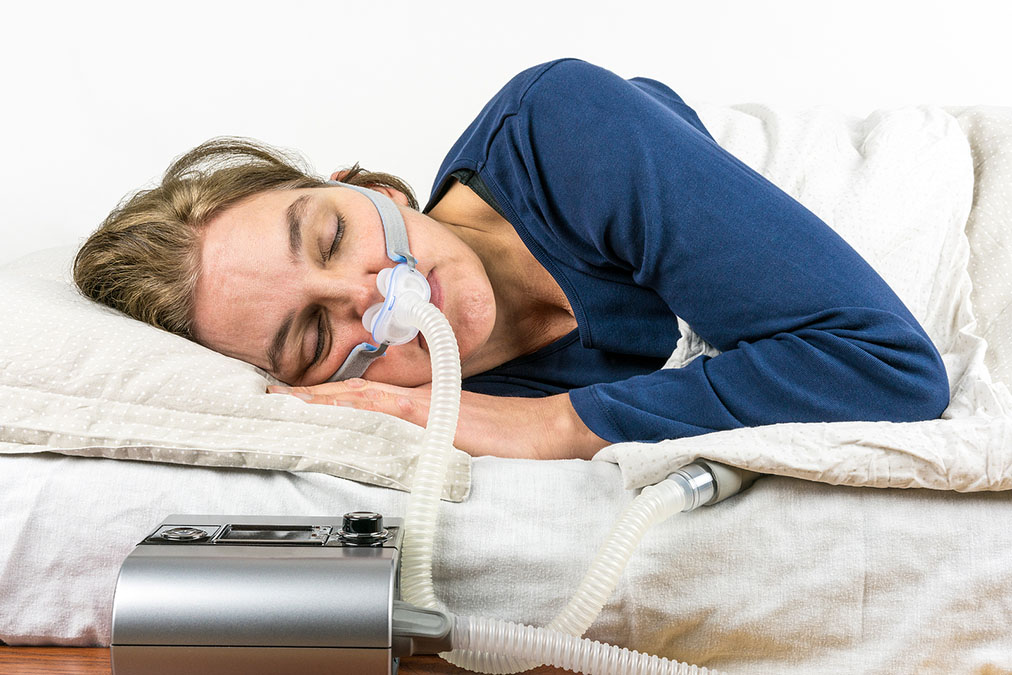
Using or considering using CPAP?
Dentists have a better solution.
People stick to it and like it more.
It’s been around for a while.
The reason it hasn’t caught on? Safety concerns.
Is the concern valid? Concluded in a new study in the Journal of Prosthodontics.
Oral appliances (OAs) are more comfortable than CPAP machines for many.
OAs are effective for up to 70% of sleep apnea patients.
But OAs for sleep apnea cause tooth or jaw damage?
The new study reviewed 42 studies of patients using OAs for 6+ months.
Findings:
1. Slight reduction in overbite and overjet (about 0.87 mm).
2. Minor changes in front teeth position:
-
- Upper teeth tipped slightly backward
- Lower teeth moved slightly forward
3. No changes in jawbone or facial structure.
The changes were very small – about four times the thickness of a human hair.
Researchers conclude that the benefits of improved sleep outweigh these minimal effects.
If you’re worried, regular dental check-ups can help monitor any changes while using an OA.

 Overcoming IBD
Overcoming IBD Multiple Sclerosis
Multiple Sclerosis Banishing Bronchitis
Banishing Bronchitis Gum Disease Gone
Gum Disease Gone Overcoming Onychomycosis
Overcoming Onychomycosis Neuropathy No More
Neuropathy No More The Prostate Protocol
The Prostate Protocol Brain Booster
Brain Booster
 Ironbound
Ironbound
 Solution for Shingles
Solution for Shingles
 The Bone Density Solution
The Bone Density Solution
 The Ultimate Healing Protocol
The Ultimate Healing Protocol
 The Parkinson's Protocol
The Parkinson's Protocol
 The Chronic Kidney Disease Solution
The Chronic Kidney Disease Solution
 Overthrowing Anxiety
Overthrowing Anxiety The Fatty Liver Solution
The Fatty Liver Solution The Hypothyroidism Solution
The Hypothyroidism Solution
 The End of Gout
The End of Gout The Blood Pressure Program
The Blood Pressure Program
 The Oxigized Cholesterol Strategy
The Oxigized Cholesterol Strategy
 Stop Snoring And Sleep Apnea Program
Stop Snoring And Sleep Apnea Program
 The Arthritis Strategy
The Arthritis Strategy The Vertigo & Dizziness Program
The Vertigo & Dizziness Program The 3-Step Diabetes Strategy
The 3-Step Diabetes Strategy Hemorrhoids Healing Protocol
Hemorrhoids Healing Protocol The Erectile Dysfunction Master
The Erectile Dysfunction Master Weight Loss Breeze
Weight Loss Breeze The IBS Program
The IBS Program The Insomnia Program
The Insomnia Program The Migraine and Headache Program
The Migraine and Headache Program The Neck Pain Solution
The Neck Pain Solution The Menopause Solution
The Menopause Solution The Ejaculation Master
The Ejaculation Master The TMJ Solution
The TMJ Solution The Acid Reflux Solution
The Acid Reflux Solution The Fibromyalgia Solution
The Fibromyalgia Solution The Psoriasis Strategy
The Psoriasis Strategy